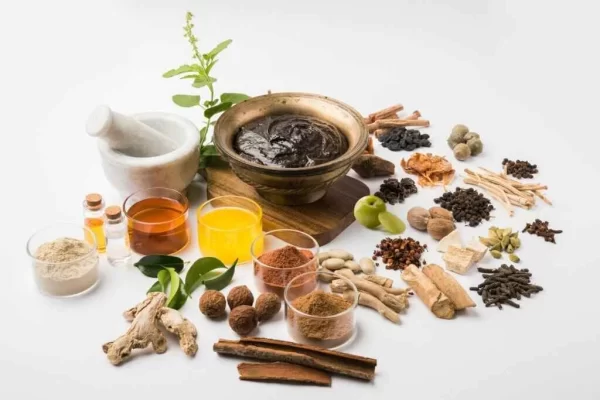Oils are a crucial component of a well-balanced skincare routine. They aid the active ingredients, allowing them be absorbed into skin. A few of the best oils that can help with skin health are grape seed, jojoba and grape sweet almond, avocado, as well as olive oil.
What’s the ideal diet for top-quality skin care oils?
A healthy diet that includes high-quality skincare oils is crucial to maintaining healthy, glowing skin. One of the best methods to achieve this is to eat foods high with essential fats, like omega 3 and omega 6. Foods such as salmon avocados, chia seeds, avocados, flax seeds, and walnuts are excellent sources for the fatty acids.
In addition to consuming these healthy fats, it’s important to include lots of vegetables and fruits within your daily diet. These foods are high in antioxidants which protect your skin from damage from free radicals.
For example, berries green leafy vegetables such as kale and spinach citrus fruits, such as grapefruit or oranges, and bell peppers. In addition, drinking plenty of water is also important for healthy skin. Being hydrated can help flush out away toxins in your body and can result in smoother skin over time. Drinking 8-10 cups per day is a good goal for water intake. By incorporating these nutritional changes into your routine you’ll be able to enjoy healthier, glowing skin from within!
What are the benefits of using essential oils for skin care?
wellhealthorganic.com:diet-for-excellent-skin-care-oil-is-an-essential-ingredient, Oils are gaining popularity as natural skin care ingredients. It’s full of antioxidants and nutrients that help provide nourishment and protection to the skin. One of the major advantages of using this oil for skin care is that it helps maintain a healthy level moisture within the skin. A variety of oils, including argan, jojoba, or coconut, contain fat acids that aid in creating an organic barrier on the skin’s surface, preventing moisture loss.
Another benefit of applying oils to your skin is their ability to tackle specific skin issues, for example, age-related or acne-prone skin. For instance tea tree oil contains antibacterial properties that are great to treat acne, while rosehip oil contains Vitamin C and antioxidants that are beneficial in diminishing fine lines, acne, or dark marks. Also, using oil is also very cost-effective in comparison to conventional commercial products for skin care that typically include synthetic ingredients. With a little research, users can discover the highest quality oils to suit their particular skin type and at a cost-effective price.
In the end, incorporating organic oils in your skincare routine can provide many benefits, including hydration, addressing specific issues such as acne or aging and being more cost-effective over commercial skin care products the skin
How do you choose the right skin care oil?
Here are some points to think about when selecting the right oil for your skin. Consider your type of skin: do you have dry, oily or mixed? Every type of skin requires a different kind of oil. For instance, if have dry skin, look for oils high in fatty acids such as avocado oil or almond oil. If you suffer from oily skin, choose an oil that is lighter like jojoba or grapeseed oil.
Consider the particular issues you’d like to tackle in your skincare routine. Some oils can help reduce redness and inflammation (like the chamomile oil), while others can aid in battling acne and breakouts (like tea tree oil). If you’re concerned about your age you should look for antioxidant-rich oil like rosehip oil and the oil extracted from pomegranate seeds.
Finally, consider the high-quality of the oil. Choose the most natural and cold-pressed choices whenever possible to ensure that the oil will retain its nutritional value without adding chemicals. When you keep these points in mind when choosing the right oil for your skin care regime, you’ll be able make sure your skin is getting the nourishment it needs to appear and feel the best.
What is a good skin care diet?
Most importantly, a healthy diet for healthy skin must include hydrating food items like foods that are rich in nutrients, such as fruits and vegetables. They are high in minerals and vitamins that aid in maintain skin moisture levels which are vital to prevent dryness and flaking. It is also essential to maintain your skin’s hydration.
Along with hydrating foods as well as eating food that is rich in antioxidants can aid in preventing damages to the skin that are caused due to free radicals. Antioxidants can be found in fruits, vegetables, and green leaves as well as nuts and dark chocolate. Omega-3 fatty acids found in the fish (such as salmon) or plant sources (such as chia seeds and walnuts) are important in the maintenance of healthy skin. Omega-3s assist in supporting skin’s oil production and help keep the skin supple.
In addition, it is important to limit processed foods that are high in sugar or refined carbohydrates. They could trigger inflammation that could lead to acne or other skin conditions. Instead, choose whole grains like quinoa or brown rice as well as natural sweeteners like honey or maple syrup when needed. It is generally recommended that you follow eating a balanced diet of whole food items is not just healthy for your overall health, but goes quite a ways towards radiant, healthy skin!
How does oil affect the general health of your skin?
Oils are an essential component of healthy skin. They are able to be beneficial or negative effects on overall skin health. On one hand, the oil may help to hydrate and nourish the skin by providing the skin with a barrier that locks the moisture. This prevents dryness and flaking and minimizes the appearance of wrinkles and fine lines.
If you use too much, or the wrong method can also lead to clogged pores, acne, and other skin issues. It is essential to select the appropriate oils that are suitable for your skin type (such as oily, dry and mixture) and apply them sparingly. Certain oils are also more susceptible to oxidation than others which can lead to free radical damage that accelerates aging.
Overall this oil is an important component in any routine for skincare, but as with all ingredients is best used with care and with attention to how it affects the individual skin concerns. By selecting and using top-quality oils that are appropriate for your specific skin care requirements and requirements, you can have healthier, more radiant skin over time.
Conclusion
In conclusion, including oil in your diet could affect the appearance and health of your skin. It is essential to select top-quality oils that are high in antioxidants and nutrients. Coconut oil, olive oil, as well as avocado oil are just a few examples of healthy oils that are beneficial for your skin.
It’s important to keep in mind that eating a balanced diet that includes plenty of fruits, vegetables, and whole grains is also crucial for keeping your skin healthy. A good intake of water and getting enough sleep are other important factors to maintaining your skin’s glow.
If you make small adjustments to your diet and lifestyle, you can maintain good skin from the inside out. By taking care of your diet and self-care (like meditation or yoga) You can get great results for your overall physical well-being and aesthetics of your skin.



